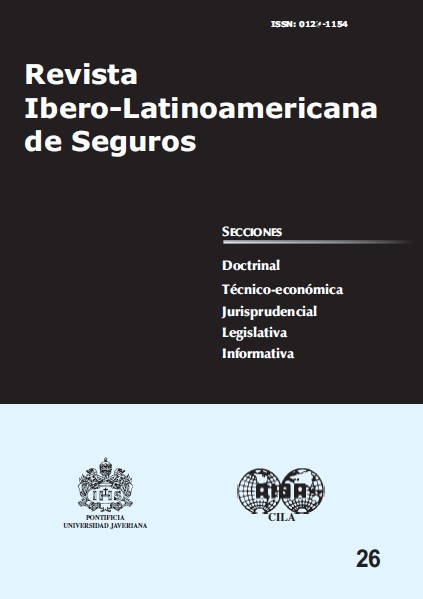Resumen
Las sociedades offshore, son consideradas como sociedades constituidas en paraísos fiscales y se caracterizan por desarrollar su objeto social en un país diferente en el que fueron conformadas. Las cautivas por su parte, son especies de sociedades offshore. Estas aseguradoras se caracterizan por ser constituidas por su una sociedad principal, ya sea que pertenezca a un grupo empresarial o no, para transferirle los riesgos propios de ella misma y sus filiales.
Entre los beneficios de poseer una cautiva, se explican los dos de mayor
importancia:
1. El primero, consiste en proporcionar un canal que conlleve a un menor impacto fiscal para la aseguradora cautiva y su sociedad principal, a través de los diferentes mecanismos que proporciona la ley.
2. El segundo beneficio permite cambiar y mejorar el manejo y la administración de riesgos a los cuales se enfrenta la sociedad principal.
El arrendamiento de cautivas, se presenta cuando el capital es puesto a disposición de otras sociedades que pretenden obtener los beneficios antes señalados, pero con el solo pago de un canon. Estas últimas han dado paso a las compañías de capital celular, en donde se divide el capital por células, que sólo podrán ser utilizadas por el beneficiario al que le corresponden, eliminando el riesgo de que un solo siniestro absorba todo el capital destinado de la aseguradora. Para poder ejecutar esa operación, se utiliza la figura de fronting, en la cual una aseguradora colombiana suscribe la póliza y la cede a una aseguradora cautiva en el exterior.
Esta revista científica se encuentra registrada bajo la licencia Creative Commons Reconocimiento 4.0 Internacional. Por lo tanto, esta obra se puede reproducir, distribuir y comunicar públicamente en formato digital, siempre que se reconozca el nombre de los autores y a la Pontificia Universidad Javeriana. Se permite citar, adaptar, transformar, autoarchivar, republicar y crear a partir del material, para cualquier finalidad (incluso comercial), siempre que se reconozca adecuadamente la autoría, se proporcione un enlace a la obra original y se indique si se han realizado cambios. La Pontificia Universidad Javeriana no retiene los derechos sobre las obras publicadas y los contenidos son responsabilidad exclusiva de los autores, quienes conservan sus derechos morales, intelectuales, de privacidad y publicidad.
El aval sobre la intervención de la obra (revisión, corrección de estilo, traducción, diagramación) y su posterior divulgación se otorga mediante una licencia de uso y no a través de una cesión de derechos, lo que representa que la revista y la Pontificia Universidad Javeriana se eximen de cualquier responsabilidad que se pueda derivar de una mala práctica ética por parte de los autores. En consecuencia de la protección brindada por la licencia de uso, la revista no se encuentra en la obligación de publicar retractaciones o modificar la información ya publicada, a no ser que la errata surja del proceso de gestión editorial. La publicación de contenidos en esta revista no representa regalías para los contribuyentes.


